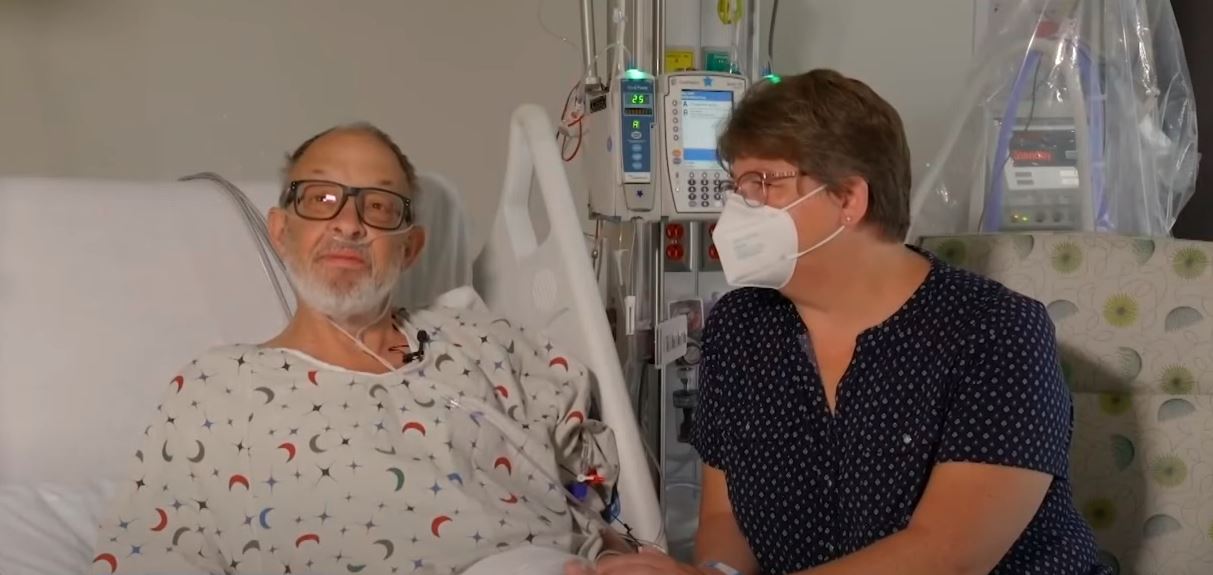The University of Maryland Medical Center made a sad announcement on Tuesday, confirming the passing of the world’s second recipient of a pig heart transplant, Lawrence Faucette.
The 58-year-old Navy veteran and retired lab technician at the National Institutes of Health underwent the groundbreaking surgery in late September, only to face complications in the final weeks of his life.
Before the signs of rejection, Faucette had been making promising progress, participating in physical therapy to regain his ability to walk and even engaging in activities like playing cards with his wife.
In the wake of his surgery, Faucette had expressed hope and optimism about his chances, acknowledging the gravity of the experimental procedure.
Faucette’s journey was marked by a remarkable connection with his surgical team, who recognized the significance of his operation for future medical advancements.
Dr. Bartley P. Griffith, Faucette’s surgeon, highlighted the patient’s awareness of the groundbreaking nature of his xenotransplant, emphasizing the potential it held for future patients facing similar challenges.
Lawrence Faucette’s wife, Ann, recalled his selflessness and compassion, noting that he always thought of others, including his family and two sons.
Faucette’s situation was dire, as his other health issues left traditional human transplantation as an impractical option.

He was granted FDA approval for the xenotransplant surgery as a last resort.
The pig heart that Faucette received was specially modified, with specific pig genes removed and human genes added to reduce the risk of rejection.
This procedure was a vital step toward making xenotransplants a reality, allowing scientists and surgeons to continue refining their techniques for future patients.
The world’s first pig heart transplant recipient, David Bennett Sr., had also shown support for the Faucette family.
Unfortunately, Bennett’s transplant was marred by complications when his pig heart became infected with a pig virus, leading to his demise after two months.
Despite the setbacks, the medical community remains dedicated to advancing xenotransplantation.
Surgeon Muhammad Mohiuddin expressed gratitude to Lawrence Faucette and his family for their contribution to the ongoing research, hoping that lessons learned from these cases will lead to improvements and help educate colleagues in the field.
These developments come as the field of xenotransplants continues to make strides.
Most recently, NYU Langone Health achieved success in transferring a pig kidney into a brain-dead patient, marking another significant milestone in the pursuit of medical advancements through xenotransplantation.


Comments are closed.